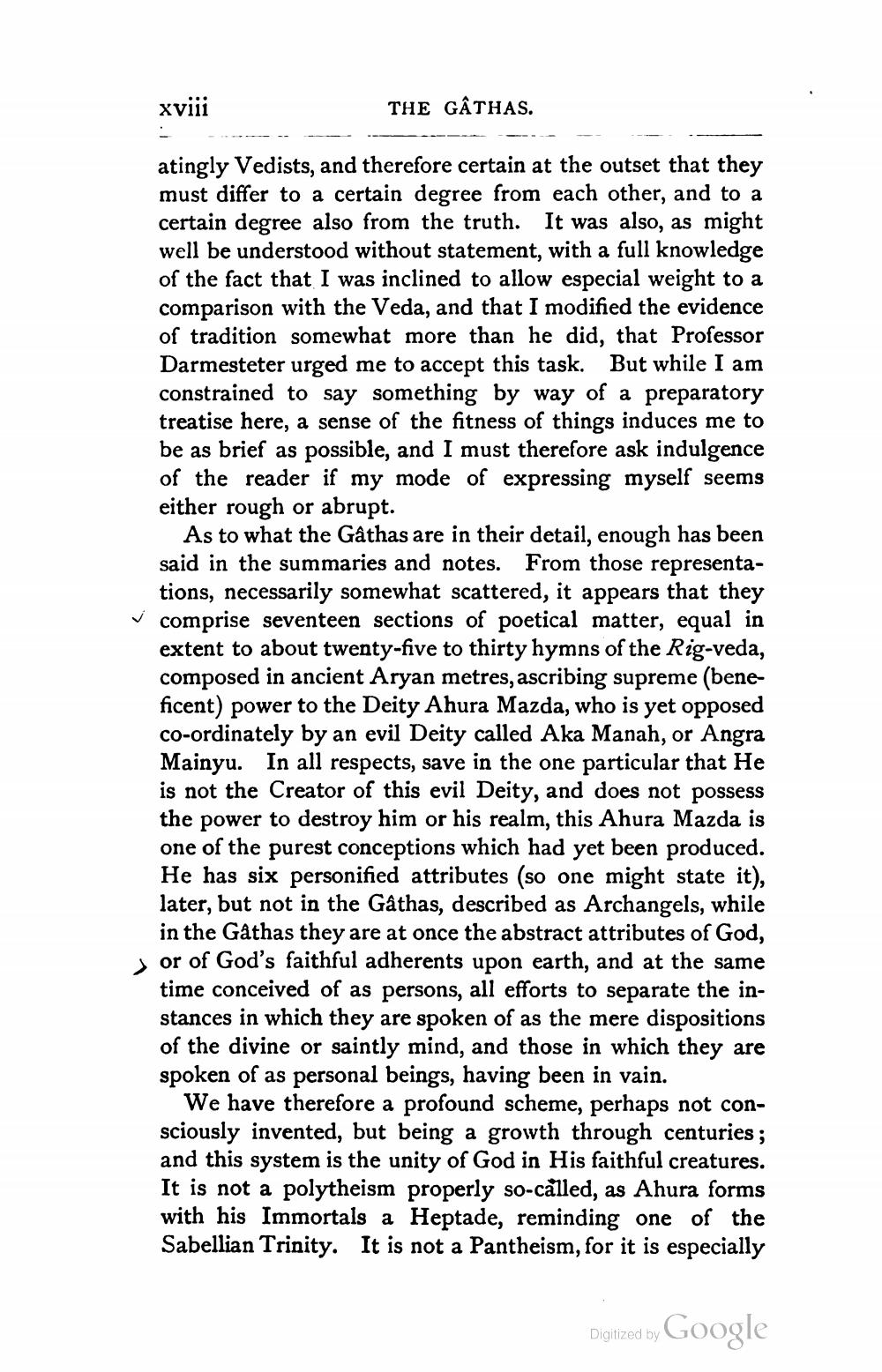________________
xviii
THE GÂTHAS.
atingly Vedists, and therefore certain at the outset that they must differ to a certain degree from each other, and to a certain degree also from the truth. It was also, as might well be understood without statement, with a full knowledge of the fact that I was inclined to allow especial weight to a comparison with the Veda, and that I modified the evidence of tradition somewhat more than he did, that Professor Darmesteter urged me to accept this task. But while I am constrained to say something by way of a preparatory treatise here, a sense of the fitness of things induces me to be as brief as possible, and I must therefore ask indulgence of the reader if my mode of expressing myself seems either rough or abrupt.
As to what the Gâthas are in their detail, enough has been said in the summaries and notes. From those representations, necessarily somewhat scattered, it appears that they comprise seventeen sections of poetical matter, equal in extent to about twenty-five to thirty hymns of the Rig-veda, composed in ancient Aryan metres, ascribing supreme (beneficent) power to the Deity Ahura Mazda, who is yet opposed co-ordinately by an evil Deity called Aka Manah, or Angra Mainyu. In all respects, save in the one particular that He is not the Creator of this evil Deity, and does not possess the power to destroy him or his realm, this Ahura Mazda is one of the purest conceptions which had yet been produced. He has six personified attributes (so one might state it), later, but not in the Gathas, described as Archangels, while
in the Gathas they are at once the abstract attributes of God, > or of God's faithful adherents upon earth, and at the same
time conceived of as persons, all efforts to separate the instances in which they are spoken of as the mere dispositions of the divine or saintly mind, and those in which they are spoken of as personal beings, having been in vain.
We have therefore a profound scheme, perhaps not consciously invented, but being a growth through centuries; and this system is the unity of God in His faithful creatures. It is not a polytheism properly so-called, as Ahura forms with his Immortals a Heptade, reminding one of the Sabellian Trinity. It is not a Pantheism, for it is especially
Digitized by Google




